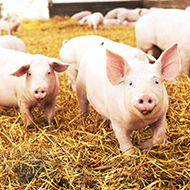
A number of important issues have either stalled or lack a timetable.
The RSPCA is calling on the UK government to prioritise a number of animal welfare issues that have either stalled or lack a timetable.
While there has been recent progress for animals - including their sentience being enshrined in law - a number of important issues have been delayed. Among them include ensuring the Kept Animals Bill completes its Parliamentary journey and following through on a commitment to ban the import of fur.
According to figures from the RSPCA's new Animal Kindness Index, 80 per cent of people in England support animal welfare being protected in law. The charity believes this new data shows the public “clearly want and expect action” from the government to protect animals and their welfare.
In light of their findings, the RSPCA is urging ministers to “get one with the job” of implementing animal welfare issues previously on the agenda that have been “left in limbo”.
The Animal Welfare (Kept Animals) Bill, for example, has been "stuck" in the Parliamentary process since October 2021, and with its journey through the House of Lords still to come, the RSPCA fears that it will stall vital improvements for millions of animals.
Likewise, a ban on the use of snares in England, the use of cages for laying hens and farrowing crates for pigs was promised, but no timeline has been announced by the UK government.
Emma Slawinski, RSPCA director of advocacy, said: “Delays to these new laws are causing unnecessary welfare problems for millions of animals - but by banning the import of fur and foie gras, ending the use of cages for laying hens and farrowing crates for pigs, and stopping the use of snares, we can deliver a kinder England.”



 The Veterinary Medicines Directorate (VMD) is inviting applications from veterinary students to attend a one-week extramural studies (EMS) placement in July 2026.
The Veterinary Medicines Directorate (VMD) is inviting applications from veterinary students to attend a one-week extramural studies (EMS) placement in July 2026.